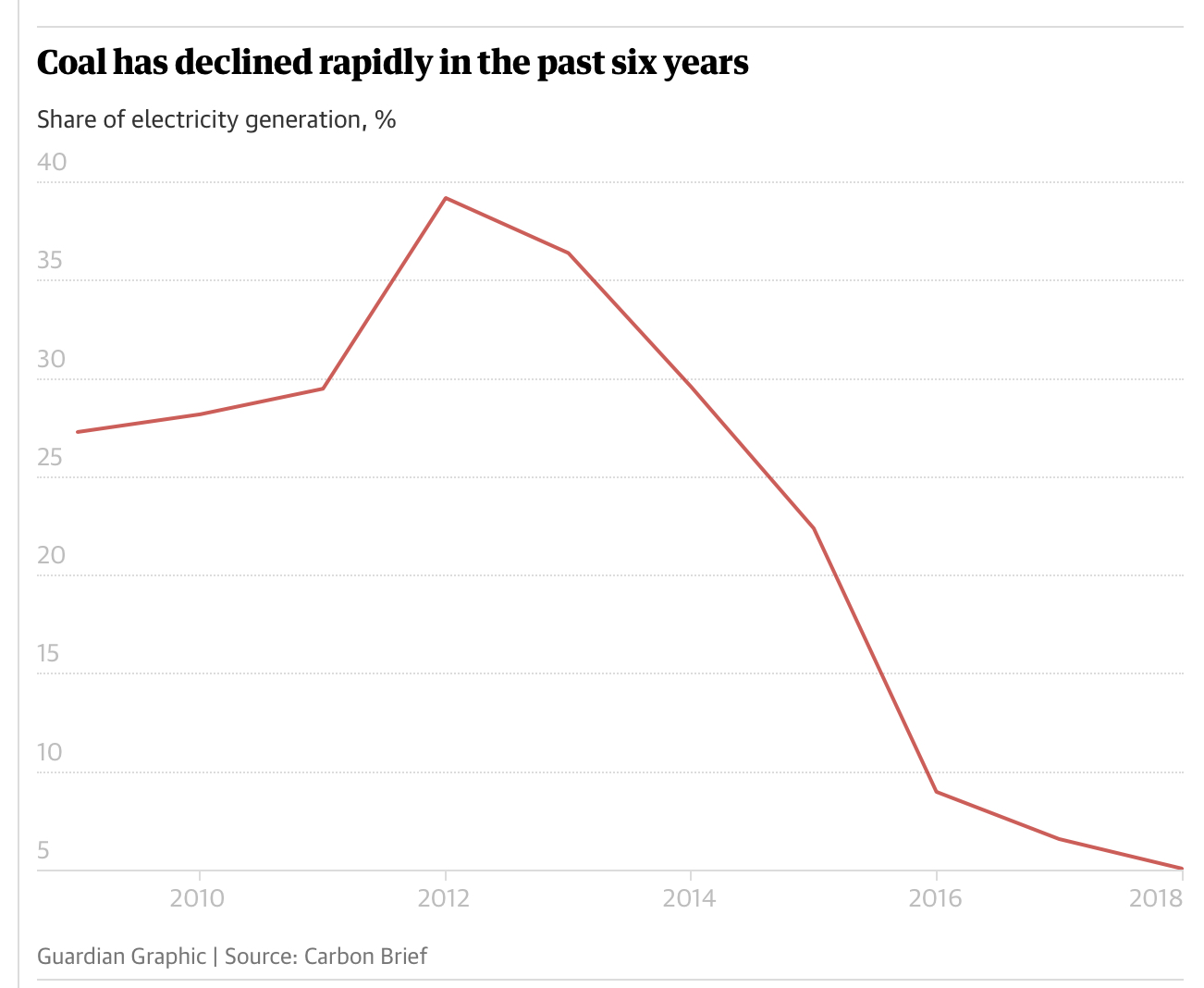Great Britain’s electrical grid has gone more than seven days without burning any coal as of Wednesday morning, the longest stretch on record since the Industrial Revolution began in England over two centuries ago.
Meanwhile, plummeting prices for wind and solar power have helped renewable energy sources surge to meet a quarter of electricity demand during this coal-free week — more than the demand met by nuclear power. In fact, wind power alone accounted for some 27% of British power on Saturday, greater than even natural gas.
What the U.K. is demonstrating this week is that coal is not needed to power a major economy, and that renewable energy sources can shoulder a bigger and bigger share of the load.
Coal power’s share of British electricity generation has been dropping sharply in recent years — from nearly 40% in 2012 to a mere 5% last year. Two years ago, the country committed to stop generating electricity with coal entirely by 2025.

Britain’s National Grid utility reported its first coal-free day in April 2017, and the previous record for going coal-free was 90 hours. But, as of publication, National Grid reports the country is at 172 hours coal-free and counting.
“As more and more renewables come onto our energy system, coal-free runs like this are going to increasingly seem like the new normal,” a National Grid spokesperson told Bloomberg.
The U.K. currently has only six operational coal plants still running. England has five, Wales has one, and Scotland went coal-free back in 2016. The goal is for these remaining plants to shutter over the next few years.
But even when all of the coal plants in Britain have closed, it will still be generating a substantial portion of its electricity with natural gas — as much as 40%.
Given that the country has a target of an 80% reduction in greenhouse gas emissions in three decades — and is actively considering a net-zero emissions goal for 2050 — the next step will be to start phasing out gas plants. Much of that natural gas generation appears likely to be replaced by offshore wind, which the U.K. expects will generate over 30% of the country’s electricity from by 2030.
Global coal use has flattened in recent years. The rise in coal use in the developing world has slowed while much of the developed world, including the United States, has starting replacing coal use — initially with natural gas, but more and more with renewable energy generation.

